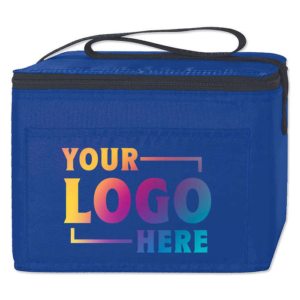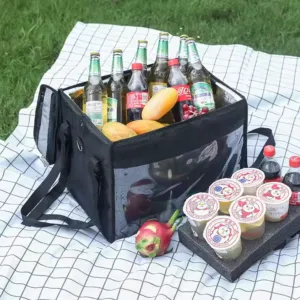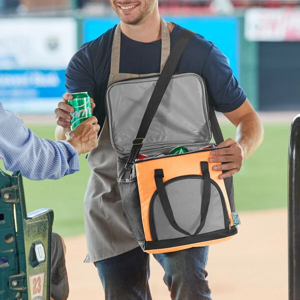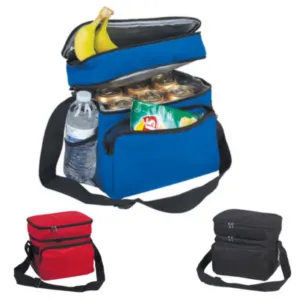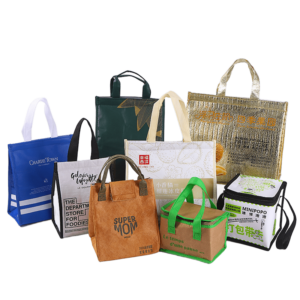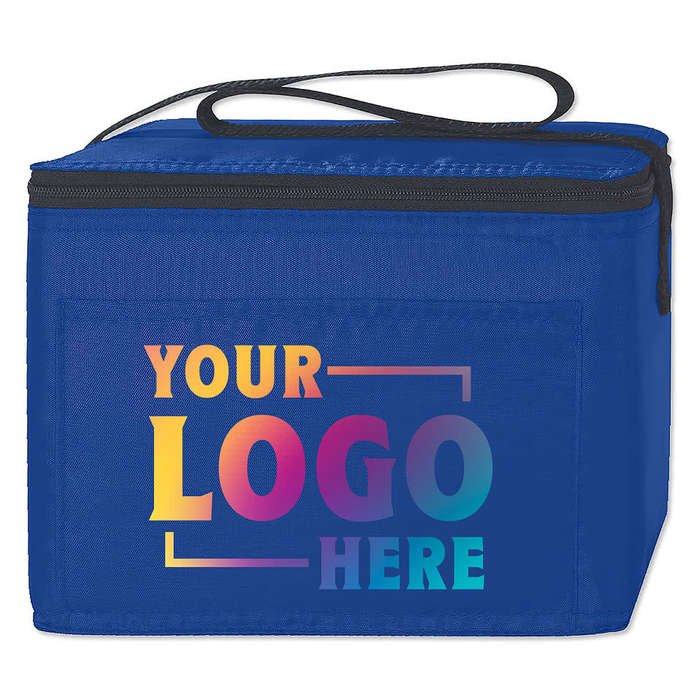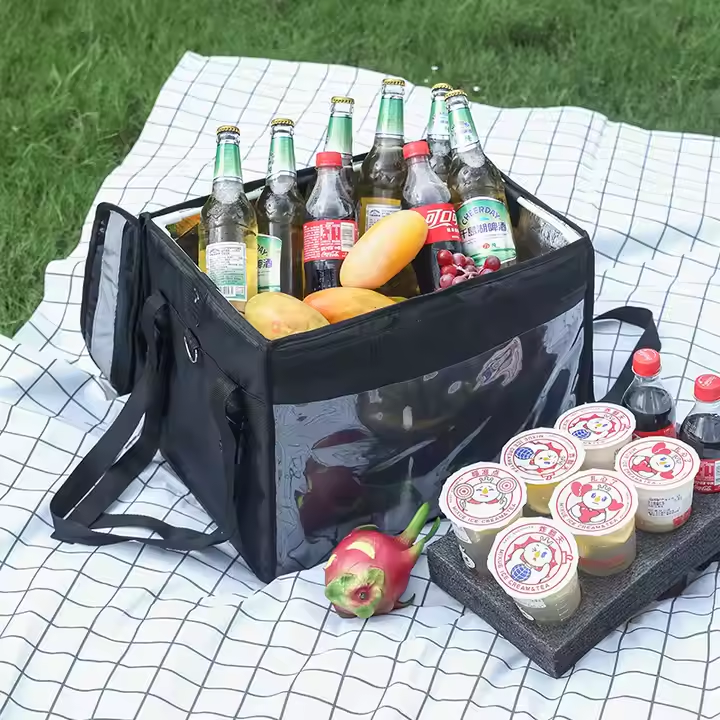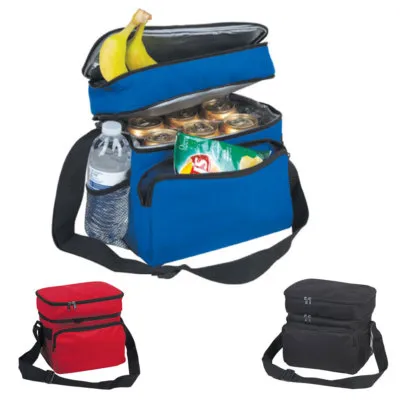Cooler bags play a vital role in the food industry by tackling key challenges in food transport. This article outlines five essential problems they solve and offers practical insights to guide food businesses toward smarter packaging solutions.
5 Problems Cooler Bags Solve for the Food Industry
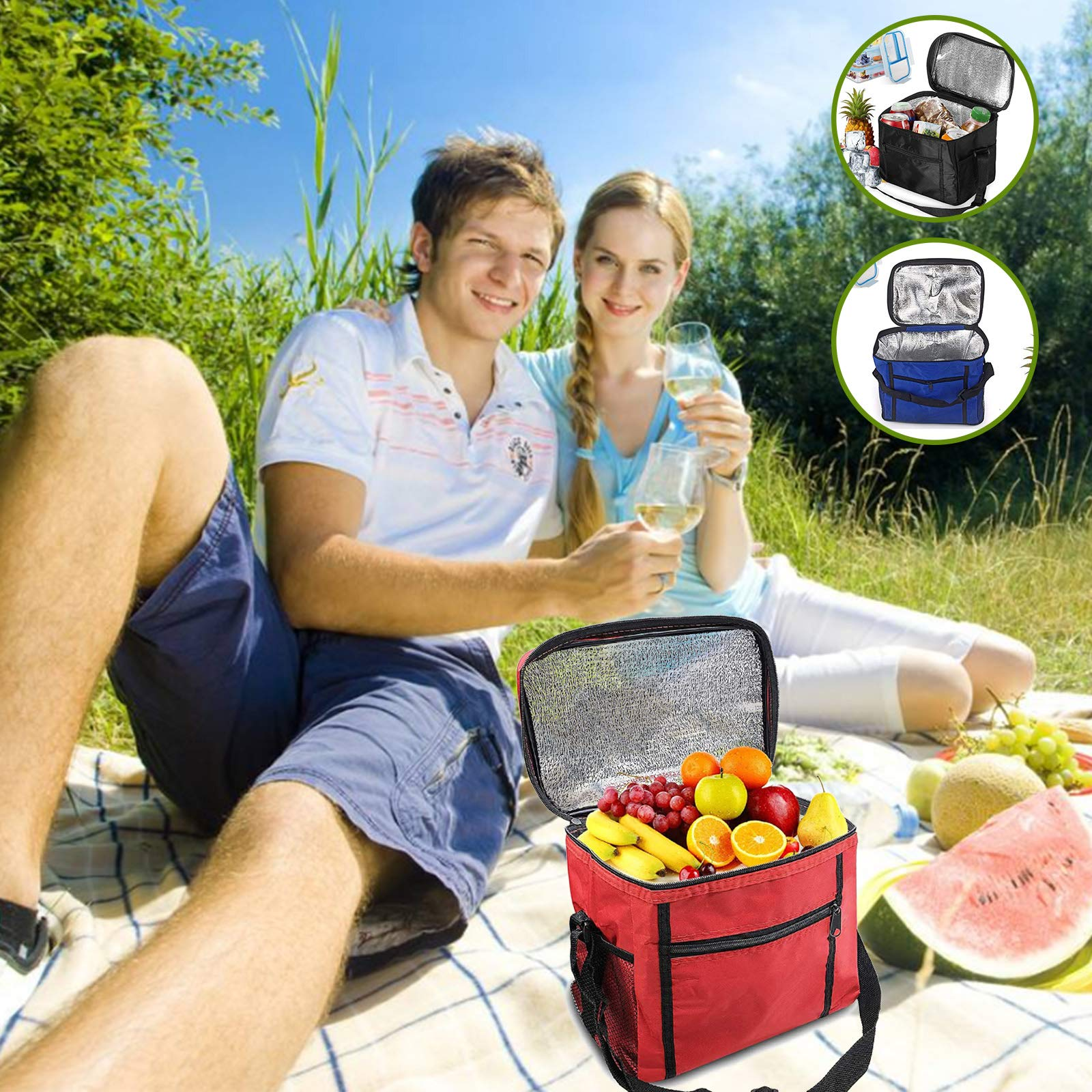
Cooler bags help maintain food quality, promote sustainability1, and improve logistics, making them a smart choice for businesses delivering perishable items.
Explore how each benefit supports your operations.
1. Keeping Food Fresh in Heat
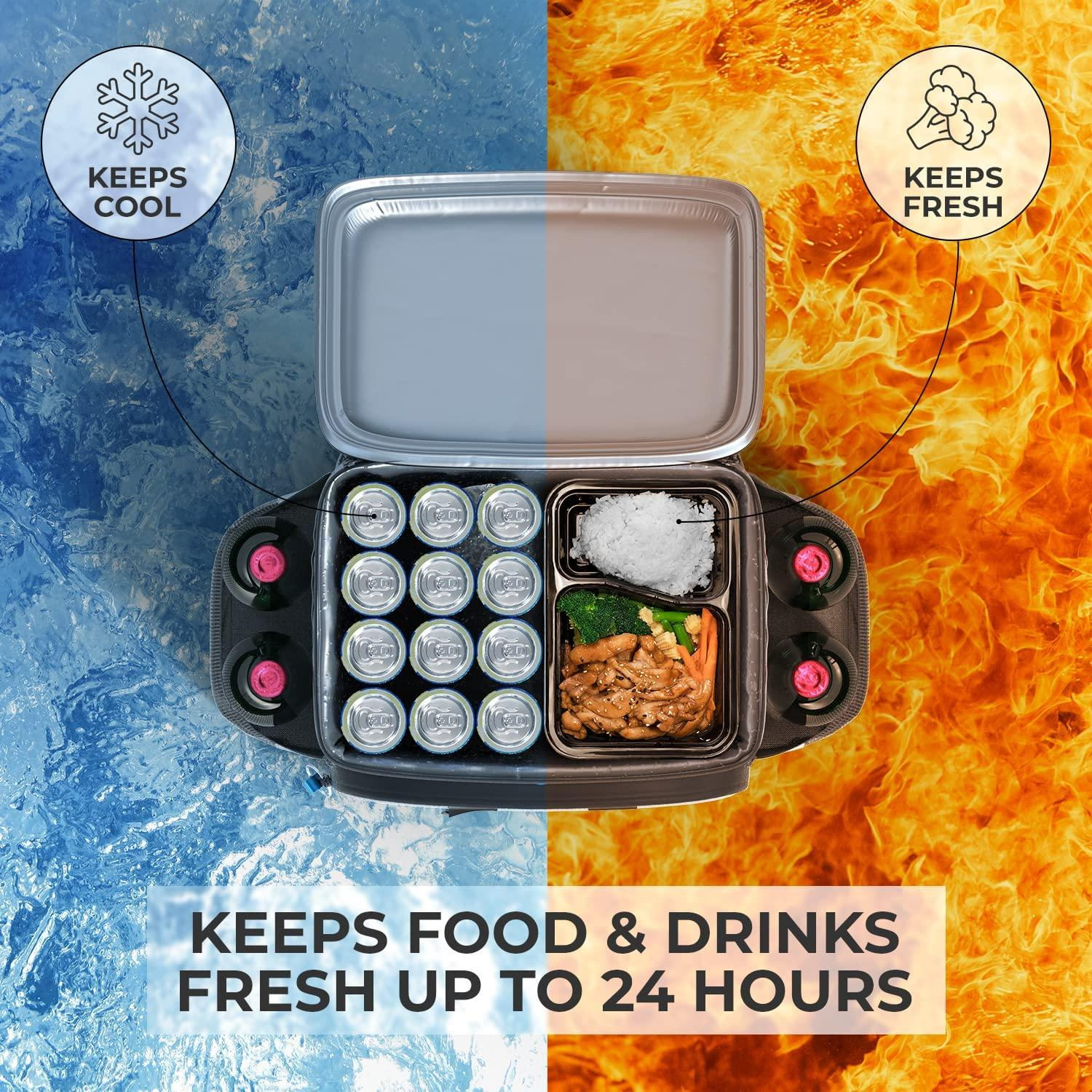
Cooler bags use insulation to stabilize food temperature on hot days. They slow down bacterial growth and delay spoilage.
Why it matters
- Heat damages flavor and texture.
- Bacterial growth accelerates above 40 °F (4 °C).
- Cooler bags extend the freshness window.
Example
A sandwich delivery service adds ice packs to a cooler bag. Food arrives at 38–40 °F, maintaining taste and safety.
| Scenario | Without cooler bag | With cooler bag |
|---|---|---|
| Sandwich delivery time | 1 hour | 1 hour |
| Food temp at arrival | 60 °F | 40 °F |
| Bacterial risk | High | Low |
2. Temperature Control for Hot and Cold Items
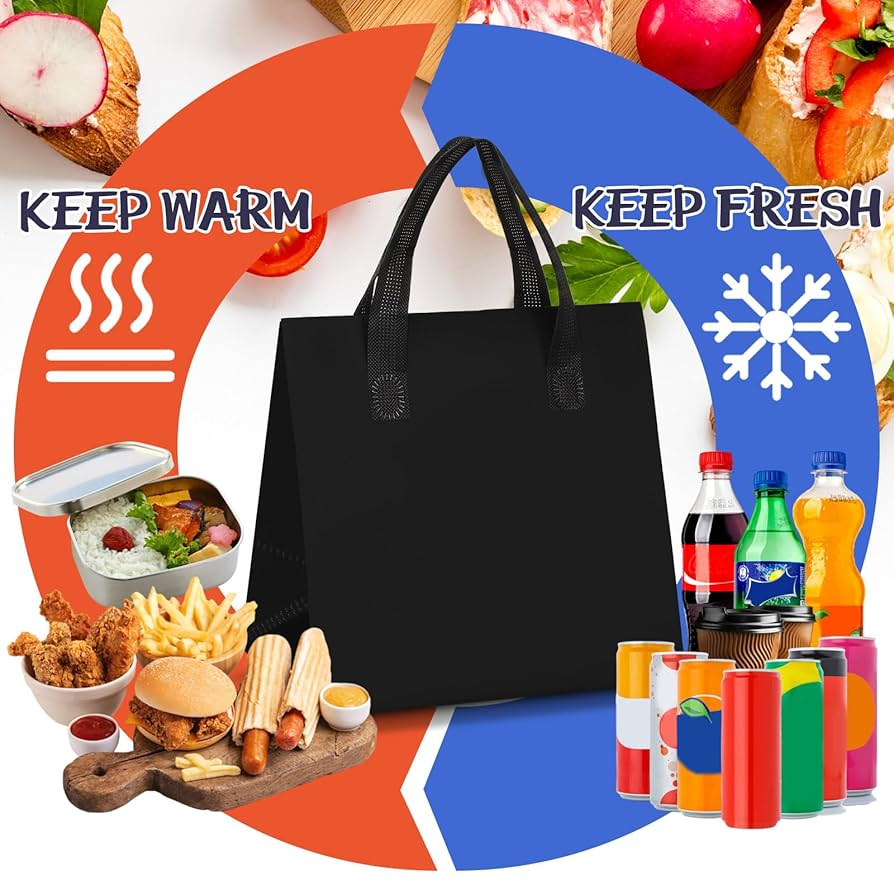
Insulated cooler bags handle both hot and cold foods in one trip, keeping meals at the right temperature.
How it works
- Dual-layer design separates heat zones.
- Reflective aluminum interior keeps heat in or out.
Practical use
A catering company puts hot soup in one section and salads in another. At delivery, soup stays at ~140 °F and salads stay cool.
Key points
- Prevents soggy or lukewarm meals.
- Supports mixed orders efficiently.
3. Spill‑Proof and Easy Cleanup
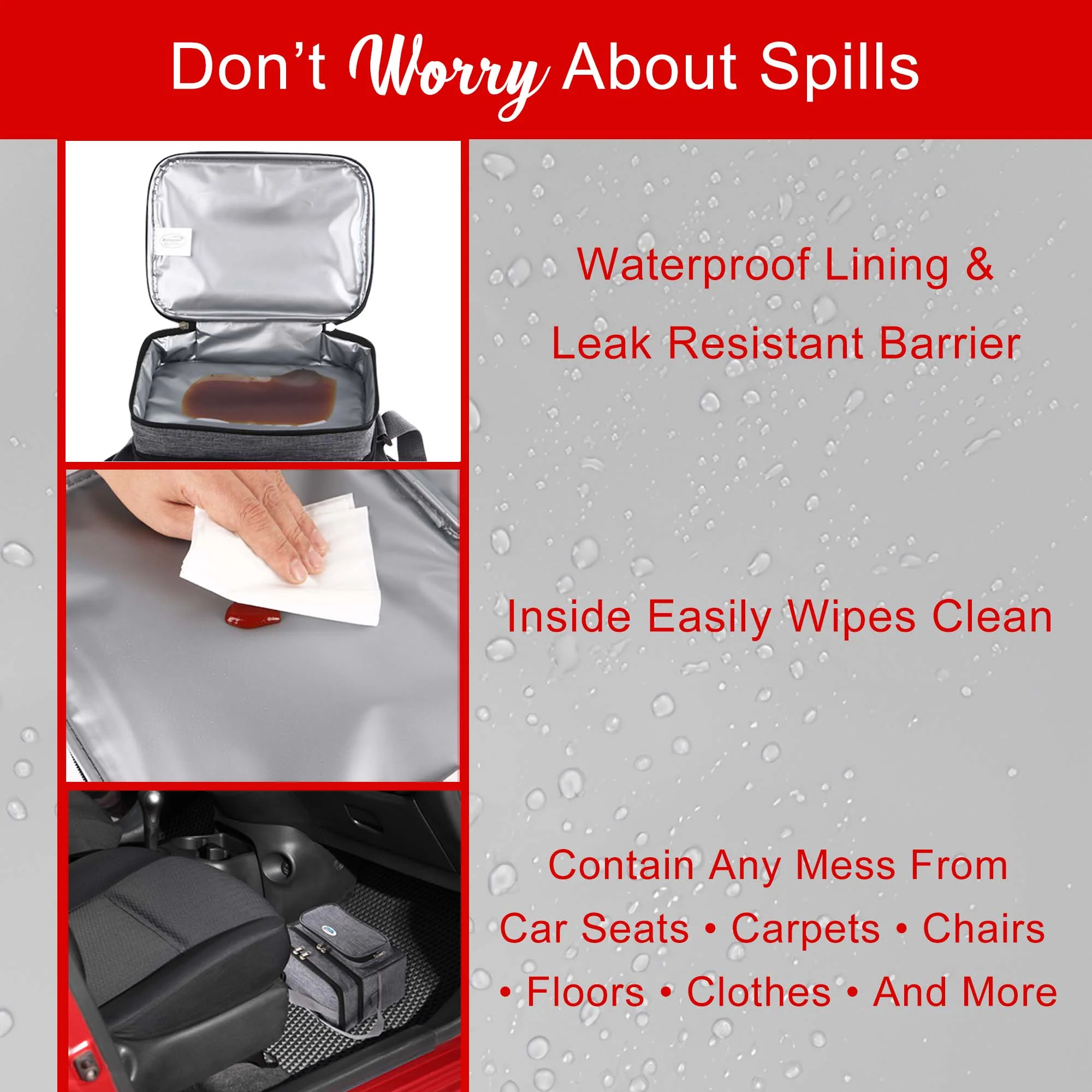
Cooler bags are often lined with leak-proof material. If a container breaks, the mess stays inside.
Benefits
- Avoids contamination of other orders.
- Saves time on cleanup.
- Improves hygiene standards.
Example
A sauce maker ships jars in cooler bags. If a jar cracks, the spill is contained. Worker simply wipes the liner and relabels damaged goods.
4. Sustainability and Reusability
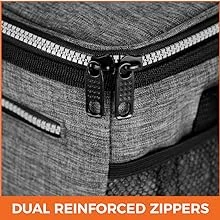
Reusable cooler bags reduce disposable packaging waste. Many use eco‑friendly materials and can be used repeatedly.
Environmental impact
- Reduces plastic and single-use foam.
- Repeat use lowers carbon footprint per shipment.
Brand visibility
- Customized logos become mobile ads.
- Each reuse reinforces brand awareness.
Example
A grocery store offers branded cooler bags for frequent shoppers. Customers reuse them weekly, boosting retention and sustainability.
5. Portability and Convenience for Delivery
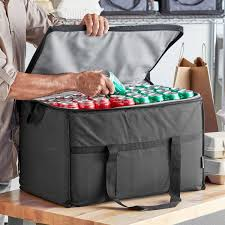
Cooler bags are lightweight, foldable, and include compartments—ideal for busy delivery routes.
Design features
- Shoulder straps and handles ease carry.
- Compartments organize meals and drinks.
Operational benefits
- Faster loading/unloading saves time.
- Structure protects food during transport.
Example
A food delivery app equips couriers with cooler bags. They complete 15% more orders per shift thanks to better organization and less spillage.
6. Advanced Long‑Lasting Cooling (Bonus)
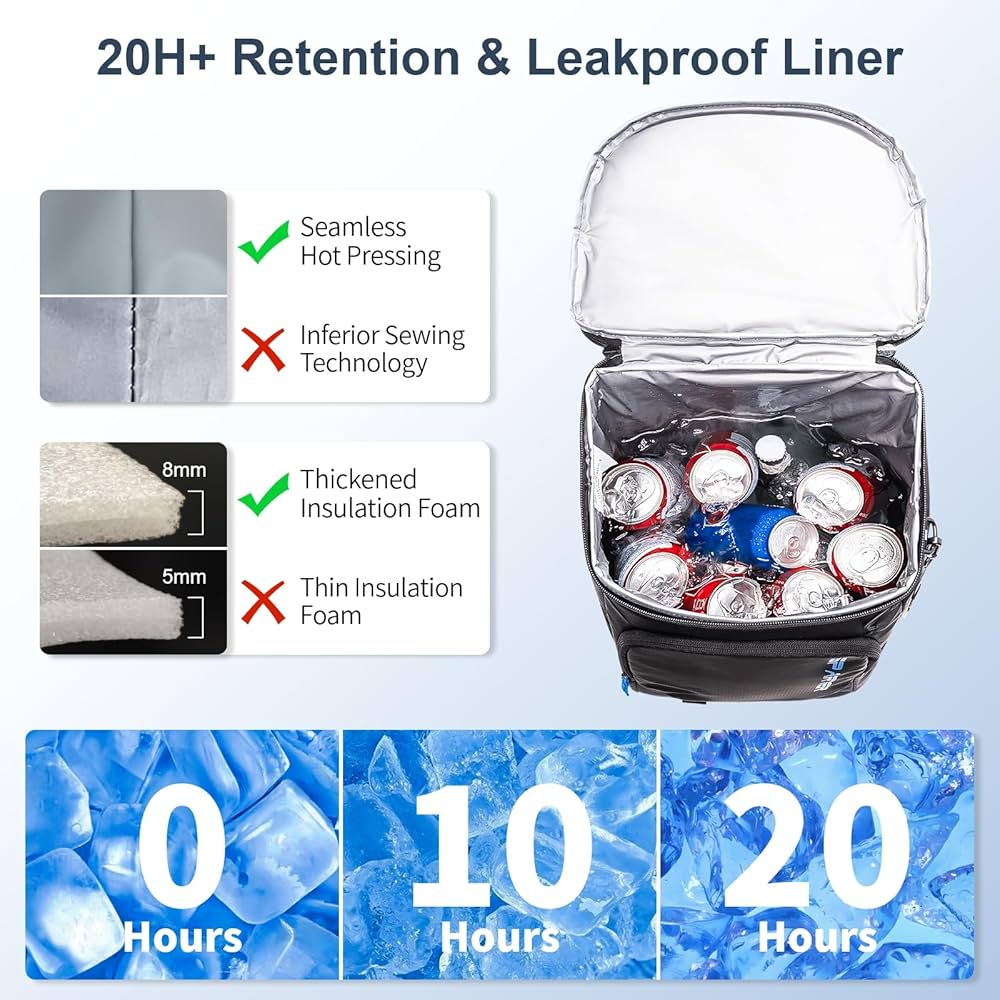
Some premium cooler bags use gel-freeze packs or phase-change liners to maintain cold for up to several days.
These bags can be used for:
- Remote catering without power
- Seed or biotech transport
- Picnic or camping meal kits
Example table
| Use Case | Duration needed | Cooler bag solution |
|---|---|---|
| Outdoor catering | 8+ hours | Gel‑freeze cooler |
| Remote site delivery | 24–48 hours | Phase‑change liner |
| Travel food kit | Multiple days | Long‑duration bag |
Conclusion
Cooler bags are essential to preserve quality, safety, and efficiency in food transport. They keep hot foods warm, cold foods chilled, prevent mess, support green practices, and help delivery logistics.
When choosing cooler bags, consider size, insulation2 type, and reusability3. For bulk or custom needs, check JiaRong Packing’s [cooler bag collection](https://www.prodelbag.com/2024/03/13/the-ultimate-guide-to-choosing-the-best-insulated-cooler-bag/)4.
I’ve used these in catering and delivery businesses—well-designed cooler bags make a real difference. Share your experience or questions in the comments below!
-
Exploring sustainability practices can help businesses reduce their environmental impact and attract eco-conscious customers. ↩
-
Choosing the right insulation is critical for maintaining food temperature, making this information valuable for food businesses. ↩
-
Reusability not only reduces waste but also promotes brand loyalty, making it a key consideration for businesses. ↩
-
Finding the right cooler bag collection can significantly impact food transport efficiency and quality. ↩


